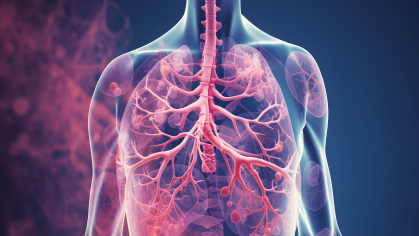Infection
Rutgers Gets $3.9M to Examine Infection Impact on Lung Disease Immunity
Researchers from New Jersey Medical School at Rutgers Health received a $3.9 million grant from the National Institutes of Health (NIH) to study how previous infections help or hinder the body’s subsequent response to unrelated pathogens that cause lung disease.
The five-year grant will support the work of immunologists William C. Gause, Amariliz Rivera and Mark Siracusa, who will examine how mice fight lung infection after exposure to various parasites, fungi and viruses.
“There’s this huge unexplained variation in how sick people get after exposure to various lung pathogens,” said Gause, director of the Rutgers Health Institute for Infectious & Inflammatory Diseases. “The same exposure that produces no symptoms in some people might prove fatal to a different set of seemingly similar people. We believe that one important factor may be previous exposure not to the same pathogen but to different ones.”
He and his colleagues hypothesize that while previous exposure to some pathogens will improve immune responses to new respiratory infections, exposure to others will worsen outcomes, either by impairing immune function or by making the immune system aggressive enough to hurt healthy tissues.
“Some studies indicate that people whose flooded houses sprout toxic mold become more susceptible to respiratory infection,” Rivera, an expert in fungal infections, said Siracusa, an expert in helminth infections.
Siracusa further noted that “when you look at nations where parasitic worms have infected most people, the severity of symptoms associated with COVID-19 seems to have been significantly lower than in nations where parasitic worms are rare, with some recent studies suggesting a causal relationship.”
The researchers also hope to uncover potential mechanisms that might influence how infections are affected by these previous exposures. In particular, specific so-called epigenetic changes in how proteins interact with regions of DNA encoding immune response genes may be altered by previous exposures to pathogens. These sometimes long-term changes may affect how quickly these genes are activated, in turn influencing how our immune system responds following exposure to the same or even quite different groups of pathogens.
The immunologists said the research could have important implications for preventing and treating lung diseases. By investigating how previous infections affect the immune system, researchers may be able to develop new ways to prevent lung damage and improve the outcomes of lung infections. “Understanding how these mechanisms of innate memory responses may develop could provide important targets for developing improved immunotherapies and next-generation vaccines,” said Gause.
The grant from the NIH’s National Institute of Allergy and Infectious Diseases will support extra positions for graduate students, postdoctoral researchers, technicians and other new staff.
Much of the work will take place at Rutgers New Jersey Medical School, including research performed at the Rutgers Regional Biocontainment Laboratory in Newark, one of 12 such federally-funded labs for research on biosafety level 3 infectious agents in the United States.

